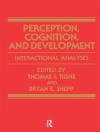The leading manual on group-based treatment of substance use disorders, this highly practical book is grounded in the transtheoretical model and emphasizes the experiential and behavioral processes of change. The program helps clients move through the stages of change by building skills for acknowledging a problem, deciding to act, developing and executing a plan, and accomplishing other critical tasks. The expert authors provide step-by-step guidelines for implementing the 35 structured sessions, along with strategies for enhancing motivation. In a large-size format with lay-flat binding for easy photocopying, the volume includes 58 reproducible handouts. Purchasers get access to a Web page where they can download and print the reproducible materials. New to This Edition *Reflects significant developments in research and clinical practice. *Eight new sessions focusing on the brain and substance use, gratitude, self-control, mindfulness, acceptance, and more. *Updated discussions of motivational interviewing and the use of cognitive-behavioral techniques with groups. *41 of the 58 handouts are new or revised; all are now downloadable. See also Substance Abuse Treatment and the Stages of Change, Second Edition, by Gerard J. Connors et al., which explores how the transtheoretical model can inform treatment planning and intervention in diverse clinical contexts.
قائمة المحتويات
Introduction I. How to Help People Change 1. How People Change: The Transtheoretical Model 2. Strategies for Facilitating Change 3. Putting It All Together: Setting Up and Carrying Out the Intervention II. Thinking about Changing Substance Use P/C/P Sequence: Precontemplation–Contemplation–Preparation P/C/P Session 1: The Stages of Change Change Process Objective: Consciousness Raising P/C/P Session 2: Myths and Misconceptions Change Process Objectives: Consciousness Raising, Self-Reevaluation P/C/P Session 3: Alcohol’s Effects on the Body Change Process Objectives: Consciousness Raising, Self-Reevaluation P/C/P Session 4: Drugs’ Effects on the Body Change Process Objectives: Consciousness Raising, Self-Reevaluation P/C/P Session 5: The Brain and Substance Use Change Process Objective: Consciousness Raising P/C/P Session 6: Expectations Change Process Objectives: Consciousness Raising, Self-Reevaluation P/C/P Session 7: Personal Values Change Process Objectives: Self-Reevaluation, Emotional Arousal P/C/P Session 8: Expressions of Concern Change Process Objectives: Self-Reevaluation, Environmental Reevaluation, Emotional Arousal P/C/P Session 9: Relationships Change Process Objective: Environmental Reevaluation P/C/P Session 10: Tipping the Balance of Change Change Process Objectives: Decisional Balance, Self-Reevaluation, Environmental Reevaluation P/C/P Session 11: Gratitude Change Process Objective: Emotional Arousal P/C/P Session 12: Roles Change Process Objective: Environmental Reevaluation P/C/P Session 13: Self-Control Change Process Objective: Self-Liberation P/C/P Session 14: Temptation and Confidence Change Process Objectives: Self-Efficacy, Self-Reevaluation, Environmental Reevaluation P/C/P Session 15: Problem Solving Change Process Objectives: Self-Efficacy, Social Liberation P/C/P Session 16: Preparing for Change Change Process Objective: Self-Liberation P/C/P Session 17: Review and Termination Change Process Objectives: Self-Reevaluation, Self-Efficacy III. Making Changes in Substance Use A/M Sequence: Action–Maintenance A/M Session 1: The Stages of Change Change Process Objective: Consciousness Raising A/M Session 2: High-Risk Situations Change Process Objective: Stimulus Control A/M Session 3: Mindfulness Change Process Objective: Counterconditioning A/M Session 4: Disrupting Habits Change Process Objectives: Stimulus Control, Counterconditioning A/M Session 5: Managing Cravings and Urges Change Process Objectives: Stimulus Control, Counterconditioning, Reinforcement Management A/M Session 6: Acceptance Change Process Objective: Counterconditioning A/M Session 7: Rewarding My Successes Change Process Objective: Reinforcement Management A/M Session 8: Assertive Communication Change Process Objectives: Counterconditioning, Reinforcement Management A/M Session 9: Effective Refusals Change Process Objectives: Counterconditioning, Reinforcement Management A/M Session 10: Managing Criticism Change Process Objectives: Counterconditioning, Reinforcement Management A/M Session 11: Positive Thinking Change Process Objectives: Stimulus Control, Counterconditioning, Reinforcement Management A/M Session 12: Managing Anxiety Change Process Objectives: Stimulus Control, Counterconditioning A/M Session 13: Wellness Change Process Objectives: Stimulus Control, Counterconditioning, Reinforcement Management A/M Session 14: Moving Forward Change Process Objective: Self-Liberation A/M Session 15: Recommitting after a Slip Change Process Objective: Self-Liberation A/M Session 16: Social Support Change Process Objective: Helping Relationships A/M Session 17: Building Your Future Change Process Objective: Social Liberation A/M Session 18: Review and Termination Change Process Objectives: Self-Efficacy, Reinforcement Management Appendix. Professional Contacts and Suggested Resources References Index
عن المؤلف
Mary Marden Velasquez, Ph D, is the Director of the Health Behavior Research and Training (HBRT) Institute at the School of Social Work, University of Texas at Austin. For more than 20 years, Dr. Velasquez has developed and studied behavioral interventions in the areas of group therapy, integrated primary care, screening and brief interventions, fetal alcohol spectrum disorder, alcohol and other drug abuse, prenatal health, sexually transmitted disease and HIV prevention, and smoking cessation. With particular expertise in the use of evidence-based brief interventions in health care, substance abuse treatment, and criminal justice settings, she is the author of numerous publications on motivational interventions in high-risk settings. She is a member of the Motivational Interviewing Network of Trainers (MINT). Cathy Crouch, LCSW, is Executive Vice-President of SEARCH Homeless Services, a large multi-service organization in Houston, Texas, which works with persons who have substance use problems and other issues. She has 27 years of management experience in nonprofit, corporate, and academic settings, and a strong commitment to using evidence-based practices and conducting research and evaluation. Over her career she has served as coprincipal investigator or consultant on a number of large federally funded research grants, including several clinical trials. Ms. Crouch is a licensed clinical social worker, a state board-approved clinical supervisor, and a member of MINT. Nanette Stokes Stephens, Ph D, is Director of Training and Research Scientist at the HBRT Institute at the University of Texas at Austin. Dr. Stephens has more than 20 years of experience working with the transtheoretical model and utilizing motivational interviewing as a trainer, clinician, consultant, coach, and supervisor, and she has published peer-reviewed journal articles and book chapters. She is a member of MINT and has worked in a wide range of settings and agencies, including those that provide substance abuse services for veterans, homeless people, military personnel, juvenile probationers, college students, and women at risk for alcohol- and tobacco-exposed pregnancies. Carlo C. Di Clemente, Ph D, ABPP, is Professor of Psychology at the University of Maryland, Baltimore County (UMBC), and Director of the MDQuit tobacco resource center, the Center for Community Collaboration, and the Home Visitor Training Certificate Program at UMBC. He is codeveloper of the transtheoretical model of behavior change and author of numerous scientific publications on motivation and behavior change with a variety of health and addictive behaviors. His books include Addiction and Change, Second Edition; Substance Abuse Treatment and the Stages of Change, Second Edition; Group Treatment for Substance Abuse, Second Edition; and the self-help resource Changing for Good. Dr. Di Clemente is a recipient of awards including the Lifetime Achievement Award from the Addictive Behaviors Special Interest Group of the Association for Behavioral and Cognitive Therapies, the John P. Mc Govern Award from the American Society of Addiction Medicine, the Innovators Combating Substance Abuse award from the Robert Wood Johnson Foundation, and a Presidential Citation from the American Psychological Association.












